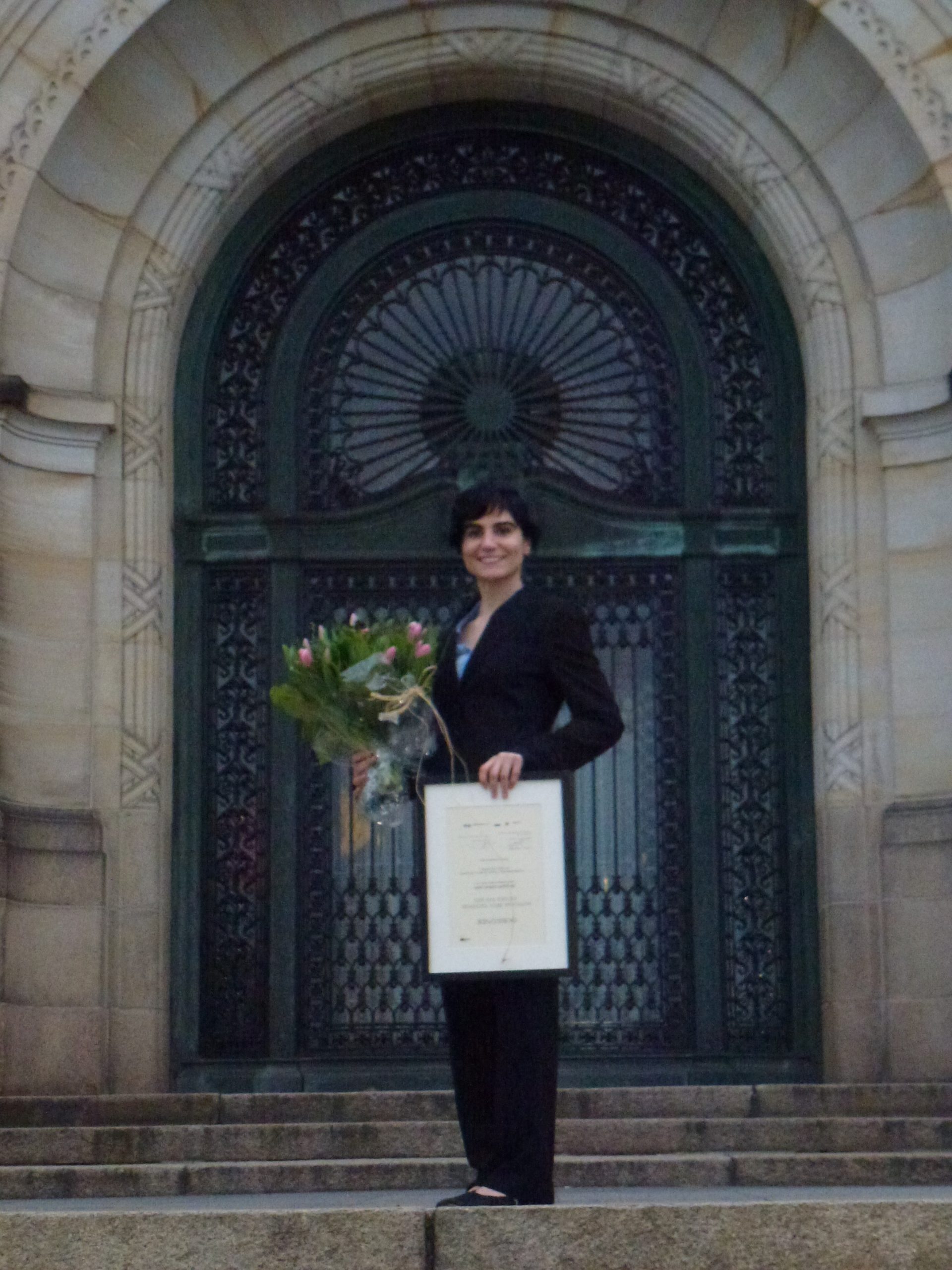Shokoufeh Cheheili Sobbi, Life Science and Technology student at TU Delft and medicine student at Radboud University Nijmegen, has won the ECHO Bèta Technology Award. The Expertise Centre for Policy Diversity (ECHO) awards the prize annually to a talented non-Western student from higher education.
Students are assessed on their academic performance as well as their active involvement in society. Cheheili Sobbi wins a summer course at theUniversity of California Los Angeles.
1. Is winning the award an incentive to perform even better in the future? Yes
2. Do you think that you have rightly won over the other two TU Delft candidates? Yes
3. Do you think that prejudice still makes it hard for foreign students to excel in the Netherlands? Yes and No
4. Is it a pity that you can’t go on summer holidays because of the summer course? No
5. Which question would you like to elaborate on?
“I would like to elaborate on Question 3. The language barrier in particular makes it hard for immigrants to excel. Language is an important element in communication. The language barrier made it hard for me to show my capacity. I have been discriminated against based on my ethnic background and language, so I needed to compensate for that. I needed to give just that little extra effort. But with a good CV, a strong personality and a lot of willpower, everyone supports you and doesn’t look at your ethnic background anymore”.
How did you impress the jury?
“I impressed the jury mainly with my CV and motivation letter. But I think I also impressed them with my presence. I am a very small and sweet girl, but I am also very confident and full of power. I am aware of my capacity and talents, and I also have the ambition to use those. You should posses both of those qualities to become successful. I do and I think that impressed the jury. “
Why did you win and not one of the other two TU Delft candidates?
“The two other TU Delft students were also very good. But I have won, because with my three disciplines of medicine, technology and scientific research, I bridge multiple barriers. First, I bridge the barrier between the medical and the technological world and also the barrier between the medical world and scientific research.”
What is a “bridger” exactly?
“A ‘bridger’ is someone who breaks barriers. Other candidates were ‘bridgers’ between two cultures or bridged a language barrier. I bridge the medical world with both the technological world and scientific research. I speak and understand the language of an engineer, of a doctor and of a scientific researcher. I understand what they mean and can make a translation from one discipline to another.”
Why is winning this award important to you?
“Winning this award is important to me because it makes my family so happy. I was already very honoured to be nominated for the award. It gave me a feeling of accomplishment. As a student you have to work very hard and do your best to get good results. This award shows that I really work hard and do my best. I became even happier with winning this award when I saw the tears in my stepfather’s eyes. If I had known this award means so much to my family, I would have even tried harder to win it.”
What do you do in daily life?
“When I am not studying, I dance and play sports. I have been in ballroom and Latin dancing for four years now and last year I started pole fitness. I need the exercise to perform well in my studies and internship.
Furthermore, I’m an interpreter for immigrants at hospitals and doctor’s offices. I help people who don’t speak Dutch and don’t have family in the Netherlands or someone to go with them to the doctor or hospital.
I am also in the starting phase of a big national project for palliative medicine, which will be applied throughout the whole country in October 2013. This branch of medicine helps to optimize the quality of life of the elderly as well as their life expectancy after they have been cured from a disease and are living in a nursing home.
Finally, I am also very interested in science, so after a day at my internship or university I like thinking about things that can be improved at my university or hospital. Currently I am in the starting phase of an interesting project, but that’s still confidential.”
Why would you like to go to the UCLA?
“I want to go to UCLA to do scientific research, not to follow courses. I also want to set up a network between the universities of Nijmegen, Delft and Los Angeles to promote more collaboration and student exchange.”
What is your ambition for the future?
“I want to continue with what I am doing now. When I finish my studies at the end of the year 2015, I will be a doctor, an engineer and a scientific researcher. I want to combine those three disciplines to accomplish change where necessary. Furthermore I want to be involved in minimally invasive surgery and tissue engineering, a new research field.”
Will we hear a lot from you in the future?
“I expect so.”



Comments are closed.